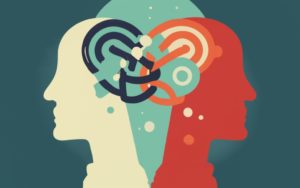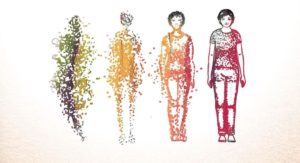If you struggle with difficult feelings or outdated coping strategies you could be experiencing the lingering effects of childhood or complex trauma, a breakthrough approach called NARM therapy may offer you the hope and healing you’ve been searching for.

What is NARM Therapy?
NARM stands for NeuroAffective Relational Model, an advanced therapy developed by psychologist Dr. Laurence Heller. This innovative therapy integrates developmental theory, attachment frameworks, and mind-body techniques to help resolve developmental trauma at its roots.
Rather than viewing trauma responses as inherent disorders, NARM sees them as adaptations to abnormal conditions or early attachment failures. By transforming these unconscious adaptations, NARM helps you:
- Reconnect with your authentic self
- Rebuild your capacity for healthy relationships
- Resolve complex trauma on a nervous system level
How NARM Therapy Differs from Traditional Approaches
Many talk therapies focus heavily on past trauma and events. While exploring your history can provide insight, too much emphasis on the past can keep you stuck.
NARM is present-focused. It helps you transform old survival patterns still active now so you can live with greater freedom. Key differences:
- Uses mindfulness and somatic techniques to process trauma through the body
- Builds self-agency to change limiting relationship dynamics
- Promotes compassionate relating to your wholeness
- Aims to initiate deep, inside-out transformation
The 5 Core Capacities NARM Seeks to Develop
NARM identifies 5 key developmental capacities essential for self-regulation, a coherent sense of identity, and interpersonal connection. These include:
- Connection – feeling belonging and emotional attunement
- Attunement – recognizing personal needs and limits
- Trust – having faith in self and others
- Autonomy – setting boundaries and limits
- Love-Sexuality – integrating intimacy and sexuality
The 5 NARM Survival Styles and their Transformations
When the previous core developmental needs go unmet, people adapt unconscious survival styles to cope. NARM identifies 5 common styles used to manage the resulting isolation, shame, and dysregulation. These include:
- Connection – disconnect from body and isolate
- Attunement – neglect personal needs for others
- Trust – seek control and become manipulative
- Autonomy – lack boundaries and please others
- Love-Sexuality – split intimacy and sexuality
While once protective, persisting in these survival styles long-term causes distress. NARM therapy gently helps transform each style to cultivate the 5 core capacities and reclaim your wholeness.
The Benefits Reported by NARM Therapy Clients
Through this experiential process, NARM helps you:
- Release limiting adaptations and false identities
- Relate more compassionately to self and others
- Integrate dissociated emotions and self-aspects
- Regain self-regulation capacities
- Live with greater inner peace and aliveness
- Transform intergenerational trauma patterns
Many clients report feeling more freedom from the past, enhanced self-esteem, improved relationships, and a greater sense of wholeness.
Considerations for Trying NARM Therapy
NARM is best suited for individuals experiencing lasting struggles tied to childhood or relational trauma. This may include:
- Complex PTSD
- Emotional dysregulation
- Depression and anxiety
- Attachment issues
- Developmental trauma
Finding a certified NARM therapist is key. You can search the NARM practitioner directory to connect with a therapist in your area.
Scheduling an initial consultation allows you to learn more about the NARM approach and process. Together, you and your therapist can determine if it’s a good fit for your treatment goals.
A Lasting Transformation Is Possible
If you feel stuck in the past and long to reclaim your inner peace, NARM therapy may offer the hope and healing you’ve been searching for. With compassion and skill, a NARM therapist can guide you through a process of deep, lasting transformation from the inside out.



